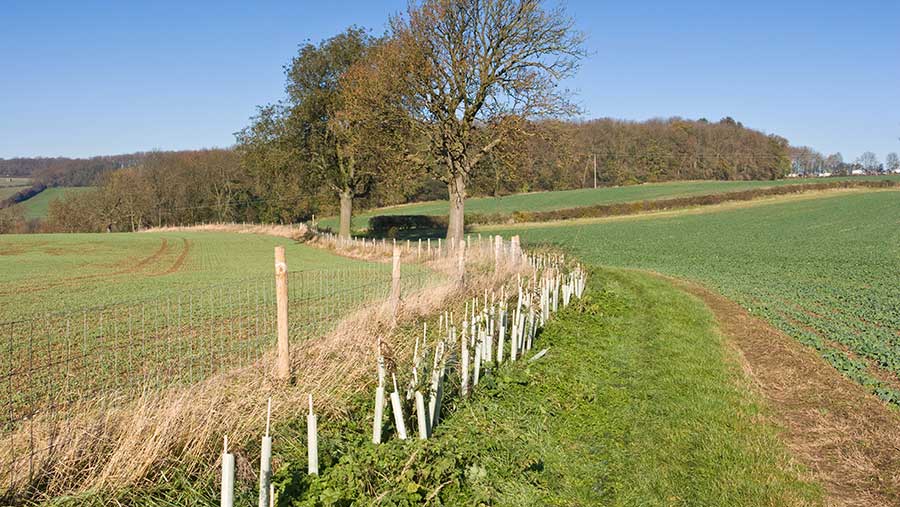Farmers want incentives for climate change mitigation in ELM
 © Tim Scrivener
© Tim Scrivener Farmers and growers want to see rewards for climate change mitigation included within the Environmental Land Management (ELM) schemes, an NFU survey has revealed.
The union quizzed 400 of its members and the results show that 84% are interested in applying for ELM, but they want to see measures to help them achieve net zero offered alongside environmental and biodiversity targets.
See also: Government watchdog casts doubt on ELM scheme delivery
Hedgerow management, permanent grassland management, precision nutrient application, creating and using renewable energy on farm, and measuring the farm’s carbon footprint were identified as the areas most important for climate action.
The NFU is running a Defra-funded net-zero ELM trial, which is looking at how climate change mitigation incentives could be included in the scheme.
The union said the survey results showed the high level of industry interest for net-zero actions, but also that every farm was at a different place on the net-zero journey and so different measures, delivery methods and levels of advice would be needed to attract as many farmers as possible.
NFU vice-president Tom Bradshaw said: “I believe this should include offering a variety of options such as maximising the carbon storage potential of our grasslands, encouraging better nutrient management and, vitally, building confidence in greenhouse gas footprinting so we can effectively benchmark progress.
“This is also an opportunity for ELM to work in conjunction with the carbon market so farmers can really maximise their potential when it comes to net-zero delivery.”
Richard Thomas, a livestock, arable and cider fruit farmer from Herefordshire who took part in the ELM trial, said net-zero incentives within ELM that benefited farmers and helped farming reach its net-zero target by 2040 were a “win-win”.
“For me, it’s important that small farms like mine are represented in the design of ELM, and I think flexibility and variety are going to be key to get as many farmers as possible taking part,” Mr Thomas said.
“For the scheme to work for my mixed farming business, I would need completely different options to those a large-scale fruit farmer in Kent would need. But if there is at least one option within ELM for each farmer to do something for net zero, then we can have a real cumulative positive impact.”
